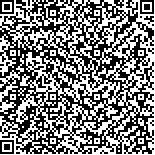马禛,陈万强,张鑫,等.重复经颅磁刺激对脑卒中患者平衡功能的影响[J].中华物理医学与康复杂志,2022,44(8):703-706
扫码阅读全文

|
| 重复经颅磁刺激对脑卒中患者平衡功能的影响 |
|
| |
| DOI:10.3760/cma.j.issn.0254-1424.2022.08.007 |
| 中文关键词: 脑卒中 平衡功能 重复经颅磁刺激 |
| 英文关键词: Stroke Balance Repetitive transcranial magnetic stimulation |
| 基金项目:甘肃省科技计划项目(21JR1RA065) |
|
| 摘要点击次数: 6426 |
| 全文下载次数: 5123 |
| 中文摘要: |
| 目的 探讨重复经颅磁刺激(rTMS)对脑卒中患者平衡功能恢复的影响。 方法 采用随机数字表法将238例脑卒中患者分为rTMS组及对照组,每组119例。2组患者均给予常规药物及康复干预,rTMS组在此基础上辅以健侧M1区低频(1 Hz)rTMS治疗,对照组则辅以伪磁刺激治疗,2组患者均每周治疗5次,连续治疗4周。于治疗前、治疗后及治疗结束6周后随访时分别采用Fugl-Meyer平衡量表、Berg平衡量表(BBS)以及改良Barthel指数(MBI)量表对2组患者进行疗效评定。 结果 治疗后rTMS组、对照组患者Fugl-Meyer平衡量表评分[分别为(9.76±2.10)分和(7.75±2.07)分]、BBS评分[分别为(40.22±8.67)分和(29.08±9.92)分]以及MBI评分[分别为(72.12±8.51)分和(65.89±8.76)分]均较治疗前明显改善(P<0.05),并且rTMS组上述疗效指标结果亦显著优于对照组水平,组间差异均具有统计学意义(P<0.05)。 结论 采用低频rTMS刺激健侧皮质M1区能有效改善脑卒中患者平衡功能及日常生活活动能力。 |
| 英文摘要: |
| Objective To explore the effects of repetitive transcranial magnetic stimulation on balance function in stroke patients. Methods A total of 238 patients randomized to a rTMS group and a control group by using the random number table at the ratio of 1∶1. Patients in the rTMS group were treated with low-frequency rTMS delivered to the contralateral M1 area, while those in the control group were treated with sham rTMS. The intervention was administered 5 times a week for 4 weeks. Both groups were also treated with conventional physical therapies in addition to rTMS. At one day before the intervention, two days and six weeks after the intervention, Fugl-Meyer Balance Scale, Berg Balance Scale and Modified Barthel index were employed to evaluate the functional outcome of all the patients. Results After intervention, the scores of Fugl-Meyer Balance Scale, Berg Balance Scale and Modified Barthel index in both groups were significantly improved, and the rTMS group improved significantly more than control group (P<0.05). When compare to the control group, the rTMS group improved to a significantly greater extent with regard to all the outcomes measures p after intervention and at follow-up (P<0.05). Conclusion rTMS is beneficial to the recovery of balance function in patients with stroke. |
|
查看全文
查看/发表评论 下载PDF阅读器 |
| 关闭 |